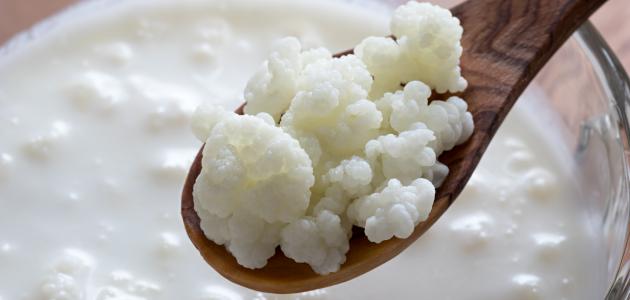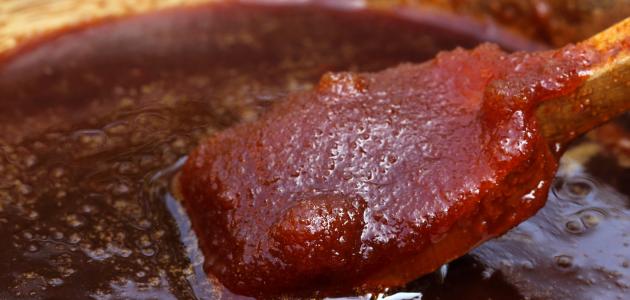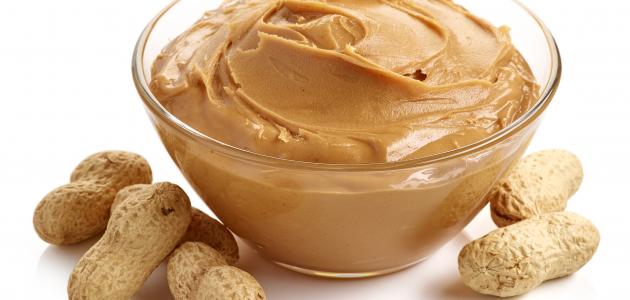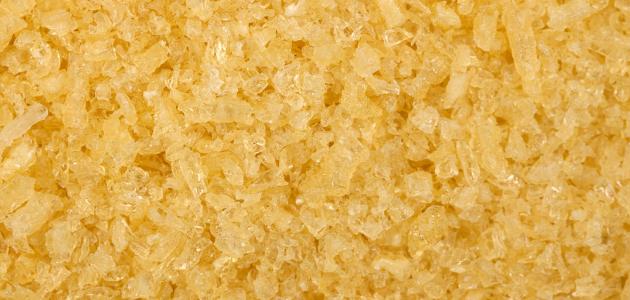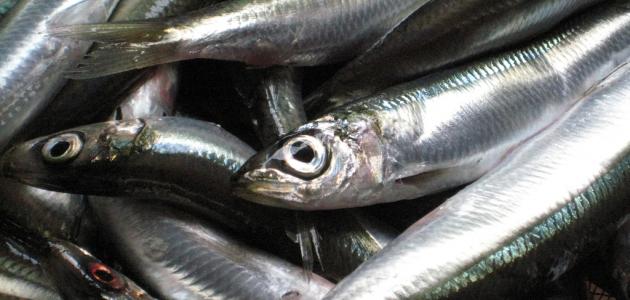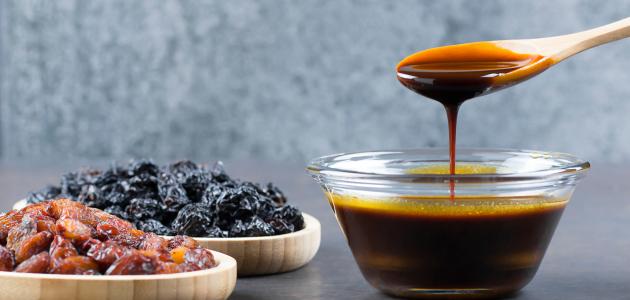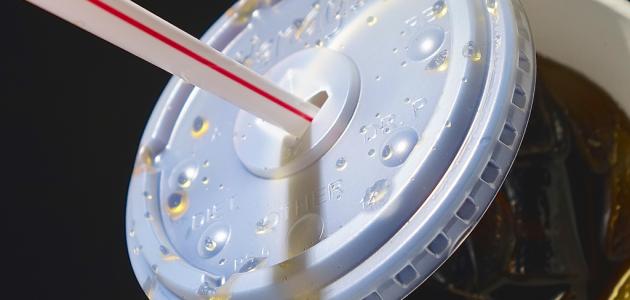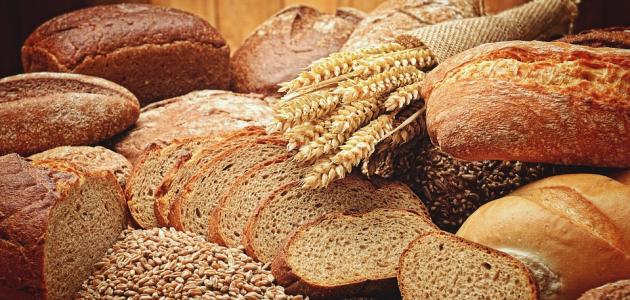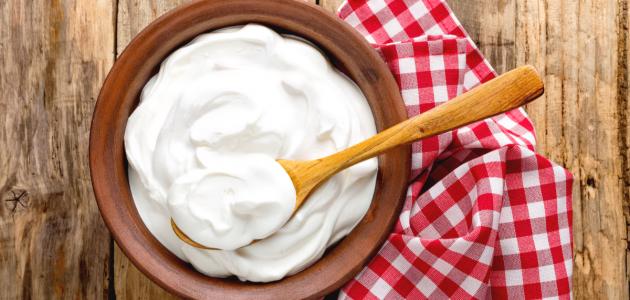Contents
Indian mushrooms
Indian mushrooms or kefir are also known by other names such as talay, miodo cakes, milk of kefir, and belljaros, and they are made from a fermented mixture of goat milk, cow's milk, or coconut milk using the yeasts found in the polysaccharide External, such as; Lactic acid bacteria, and the Indian mushroom pill, which in turn contains between thirty to fifty strains of bacteria, and yeasts, depending on the method of culture. [1]
The production of kefir or Indian mushrooms dates back to the nineteenth century. It initially appeared in Eastern Europe, Russia, and Southwest Asia, and its consumption is now spread all over the world [1] and the Indian mushroom has a subtle or sharp flavor, and is similar in texture to liquid milk. It has a fizzy flavor resulting from the fermentation process, and Indian mushrooms made from cow's milk can be available either full fat or fat-free, or it may contain it in small quantities, and it is available in different flavors. [2]
The nutritional value of Indian mushrooms
The table below shows the nutritional value per 100 grams of Indian mushrooms: [3]
| The food item | Nutritional value |
|---|---|
| water | 87.44 ml |
| Calories | 52 calories |
| Protein | 3.59 grams |
| Fats | 0.92 g |
| Carbohydrates | 7.34 grams |
| Sugars | 6.91 grams |
| Calcium | 124 milligrams |
| Iron | 0.04 milligram |
| magnesium | 12 milligrams |
| Phosphorous | 100 milligrams |
| Potassium | 159 milligrams |
| Sodium | 38 milligrams |
| Zinc | 0.45 milligram |
| Copper | 0.009 milligrams |
| Selenium | 3.6 micrograms |
| vitamin C | 0.8 milligrams |
| Vitamin B1 | 0.03 milligram |
| Vitamin B2 | 0.172 milligrams |
| Vitamin B3 | 0.128 milligrams |
| Vitamin B6 | 0.059 milligrams |
| Folate | 18 milligrams |
| Vitamin B12 | 0.3 mcg |
| Vitamin A | 174 micrograms |
| Vitamin E. | 0.04 milligram |
| Vitamin D | 1 mcg |
| Vitamin K. | 0.6 mcg |
| Cholesterol | 5 grams |
Benefits of Indian mushrooms
The benefits of Indian mushrooms according to the degree of effectiveness
There is insufficient evidence of effectiveness.
- Relief from constipation: A preliminary study published in the Turkish Journal of Gastroenterology in 2014 indicated that consuming Indian mushrooms has a positive effect on symptoms of constipation , as it helps improve bowel and colon movement, improves the frequency of the excretion process, and the consistency of the stool. Patients suffering from functional constipation, known as chronic idiopathic constipation, have problems with bowel movements, but more studies are still needed. [4]
- Reducing inflammatory bowel disease, such as; Ulcerative colitis and Crohn's disease , as a study published in the Turkish Journal of Gastroenterology in 2019 indicated that consuming Indian mushrooms helps to improve symptoms of these diseases, including improving the formation of microbes or microbiomes in the intestine, in addition to reducing levels of both blood sedimentation rate. Erythrocyte sedimentation rate and C-reactive protein, which are elevated with inflammation, which may contribute to enhancing the quality of life for those suffering from these inflammatory diseases in the short term. [5]
- Helping to lose weight: A study published in the European Journal of Nutrition in 2016 indicated that consumption of Indian mushrooms by premenopausal women who are overweight or obese is associated with reduced weight, body mass index, and waist circumference. More studies are still needed on this. [6]
- For more information about the benefits of Indian mushrooms to lose weight you can read an article the benefits of mushroom Indian slimming .
- Improving lactose digestion: Eating Indian mushrooms and flavored Indian mushrooms improves lactose digestion and reduces the severity of symptoms associated with lactose indigestion , such as gas, but this effect requires more studies to confirm it. [7]
- Other benefits: There are some other benefits of kefir, but they are still not confirmed, and there is a need for more studies and evidence to confirm its effectiveness in that, and they are as follows: [8]
- Improve digestion.
- Reducing the symptoms associated with menopause .
Scientific studies on the benefits of Indian mushrooms
- A preliminary study in mice published in Inflammopharmacology in 2005 indicated that a polysaccharide extracted from Indian mushrooms helps fight infections because it contains prebiotic compounds with anti-inflammatory properties. [9]
- A study published in the Iranian Journal of Public Health in 2015 indicated that consuming Indian mushrooms helps reduce diabetes . It was observed that it reduced the cumulative sugar level when consumed by people with diabetes compared to those who consumed regular milk. [10]
- For more information about the benefits of Indian mushrooms for diabetes, you can read the article on the benefits of Indian mushrooms for diabetics .
Harms of Indian mushrooms
The degree of safety of Indian mushrooms
It is likely that it is safe to consume Indian mushrooms for adults for a period of up to six months, but it may cause constipation and spasms in the intestine, especially when consumed for the first time. As for children aged between one and five years, it is possible that they eat Indian mushrooms for a period of up to Ten days, and with regard to pregnant and lactating women, there is not enough evidence about the degree of safety of eating Indian mushrooms, so it is advised that they avoid it. [11]
Precautions for the use of Indian mushrooms
Eating Indian mushrooms is related to certain caveats for some groups, and among these groups the following:
- People with colon cancer: The consumption of Indian mushrooms may increase the symptoms associated with chemotherapy in people with colon cancer, such as; Stomach and intestinal problems, mouth ulcers, lethargy or drowsiness, sweating, and hair loss. [8]
- People with acquired immunodeficiency disease: AIDS or any other conditions that weaken the immune system, as their consumption of Indian mushrooms may raise their risk of infection, due to its content of bacteria and yeast. [12]
Pharmacological interaction with Indian mushrooms
Taking Indian mushrooms with some medications leads to drug interactions, and therefore it is necessary to consult a doctor before combining their consumption together:
- Immunosuppression drugs: , classifies interference with this mushroom Indian medicines medium grade ; Where the Indian mushroom contains live bacteria and yeasts, and although the human immune system is able to combat them to reduce the risk of infection, taking drugs that suppress immunity may increase the risk of infection and disease due to these bacteria, and from these drugs Azathioprine, basiliximab, and cyclosporine.
- Aldezlviram medicine: ; The interaction of Indian mushrooms with this drug is classified as simple , as their consumption may cause headache, vomiting, flushing, and others. [13]
Common questions about Indian mushrooms
Is Indian mushrooms good for children
There is no information available about the benefits of Indian mushrooms for children specifically, but it is worth noting that it is likely to be safe for children from one to five years of age, but it is advised to consult a specialist pediatrician, but for children under the age of one year, they should avoid consuming cow's milk and products. Including Indian mushrooms - in contrast, mother's milk is a good source of probiotics. [14]
Is Indian mushrooms good for cancer
generally; There are no specific foods that have been shown to influence cancer, and patients are always advised to consult specialist doctors, and to adhere to the treatment prescribed to them instead of alternative treatments, which are usually uncertain, and it is always advised to consult a doctor before using any type of them, as some of them may affect The treatment prescribed to them by doctors, and with regard to Indian mushrooms, it has been observed in some initial and unconfirmed studies that it may have an effect in reducing the risk of cancer, as it is believed that the probiotics available in fermented milk products, including Indian mushrooms, may help to reduce To reduce the growth of tumors and reduce the risk of cancer, by stimulating the immune system, [15]In one of the laboratory studies - which was conducted using isolated cells in the laboratory - it was noted that the Indian mushroom extract could reduce the spread of cancer cells in the breast, which may contribute to reducing the risk of infection and mitigating it, and the effect of the extract in limiting the spread was clear. At lower concentrations, compared to other dairy products in the study, such as; Milk, and pasteurized milk. [16] It was also noted in another laboratory study on colon cancer that was published in the International Journal of Oncology in 2014 that the Indian mushroom reduces the spread of colon cancer cells and stimulates their apoptosis. Or what is known as apoptosis, [17]However, as previously mentioned, these studies were not conducted on humans, and none of them clarified the effect of the Indian mushroom on cancer patients, but only in reducing the risk of developing it, and there is still a need to conduct other studies to clarify this further and understand its effect, and as mentioned previously it is worth Note that consuming Indian mushrooms by colon cancer patients who receive chemotherapy may increase some of their symptoms, such as; Problems in the stomach, intestines, mouth ulcers, and others, and therefore it is important for patients who receive these treatments to consult specialist doctors before consuming Indian mushrooms or any other type of food to ensure its safety for them. [8]
Is Indian mushrooms good for pregnant women
There is no information available about the benefits of Indian mushrooms for pregnancy and as mentioned previously, there is insufficient information about the degree of safety of pregnant and breastfeeding women consuming the Indian mushroom, so it is advised to avoid it. [8]
Does Indian mushroom provide benefits for infertile people
There is no information available about the benefits of Indian mushrooms for relieving infertility.
References
- ^ A b Chloe Bennett (11-1-2019), "Kefir Health Benefits" , www.news-medical.net The , Retrieved 14-6-2020. Edited.
- ↑ Megan Ware (13-7-2017), "Seven benefits of kefir" , www.medicalnewstoday.com , Retrieved 14-6-2020. Edited.
- ↑ "Kefir, NS as to fat content" , www.fdc.nal.usda.gov , 1-4-2020, Retrieved 6-14-2020. Edited.
- ↑ İlker Turan, Ozden Dedeli, Serhat Bor, and others (2014), “Effects of a kefir supplement on symptoms, colonic transit, and bowel satisfaction score in patients with chronic constipation: A pilot study , ” Turkish Journal of Gastroenterology , Issue 6 , Folder 25, Page 650-656. Edited.
- ↑ İlkay Yılmaz, M. Dolar, Haydar Özpınar (3-2019), "Effect of administering kefir on the changes in fecal microbiota and symptoms of inflammatory bowel disease: A randomized controlled trial" , Turkish Journal of Gastroenterology , Issue 3, Folder 30 , Page 242-253. Edited.
- ↑ Yasamin Fathi, Shiva Faghih, Mohammad Zibaeenezhad, and others (2-2016), “Kefir drink leads to a similar weight loss, compared with milk, in a dairy-rich non-energy-restricted diet in overweight or obese premenopausal women: a randomized controlled trial ” , European Journal of Nutrition , Issue 1, Folder 55, Page 295-304. Edited.
- ↑ Shannon Clancy, Steven Hertzler (5-2003), “Kefir improves lactose digestion and tolerance in adults with lactose maldigestion” , Journal of the American Dietetic Association , Issue 5, Folder 103, Page 582-587. Edited.
- ^ A b t w "KEFIR" , the www.webmd.com , Retrieved 16-6-2020. Edited.
- ↑ K. Rodrigues, J. Carvalho & J. Schneedorf (2005-10), “Anti-inflammatory properties of kefir and its polysaccharide extract” , Inflammopharmacology , Issue 5-6, Folder 13, Page 485-492. Edited.
- ↑ Alireza Ostadrahimi, Akbar Taghizadeh, Majid Mobasseri, and others (2-2015), "Effect of Probiotic Fermented Milk (Kefir) on Glycemic Control and Lipid Profile In Type 2 Diabetic Patients: A Randomized Double-Blind Placebo-Controlled Clinical Trial" , Iranian Journal of Public Health , Issue 2, Folder 44, Page 228-237. Edited.
- ↑ "Kefir" , www.medicinenet.com , 17-9-2019, Retrieved 17-6-2020. Edited.
- ↑ "Kefir" , www.emedicinehealth.com , 17-9-2019, Retrieved 17-6-2020. Edited.
- ↑ "KEFIR" , www.rxlist.com , 17-9-2019, Retrieved 17-6-2020. Edited.
- ↑ Ana Gotter (17-9-2018), "What Is Kefir?" , Www.healthline.com , Retrieved 18-6-2020. Edited.
- ↑ Joe Leech (9/24-2018), "9 Evidence-Based Health Benefits of Kefir" , www.healthline.com , Retrieved 6/18-2020. Edited.
- ↑ Chujian Chen, Hing Chan, Stan Kubow (9-2007), “Kefir Extracts Suppress In Vitro Proliferation of Estrogen-Dependent Human Breast Cancer Cells but Not Normal Mammary Epithelial Cells” , Journal of Medicinal Food , Issue 3, Folder 10, Page 416-422. Edited.
- ↑ Nathalie Khoury, Stephany El ‑ Hayek, Omayr TarraS, and others (11-2014), “Kefir exhibits anti ‑ proliferative and pro ‑ apoptotic effects on colon adenocarcinoma cells with no significant effects on cell migration and invasion , ” International Journal of Oncology. , Issue 5, Folder 45, Page 2117-2127. Edited.
